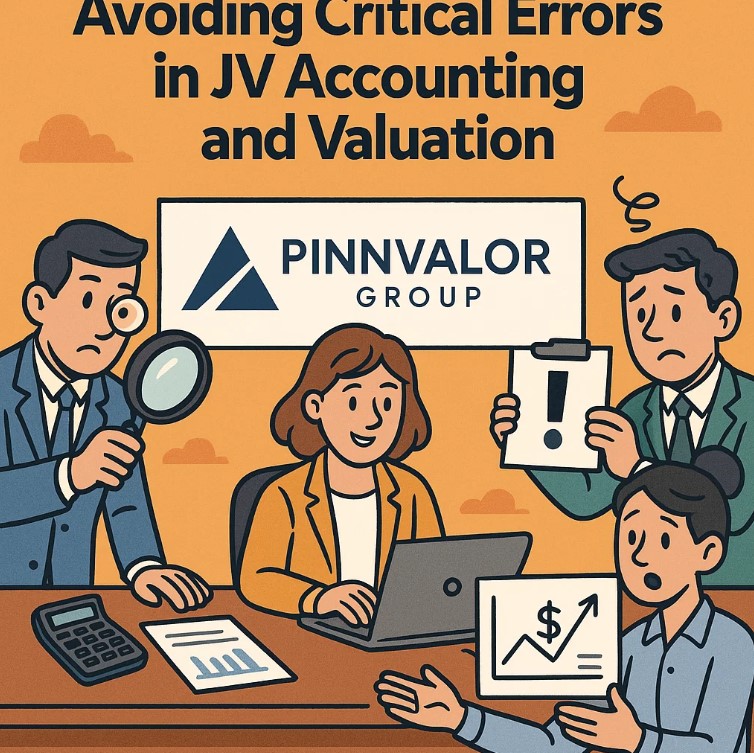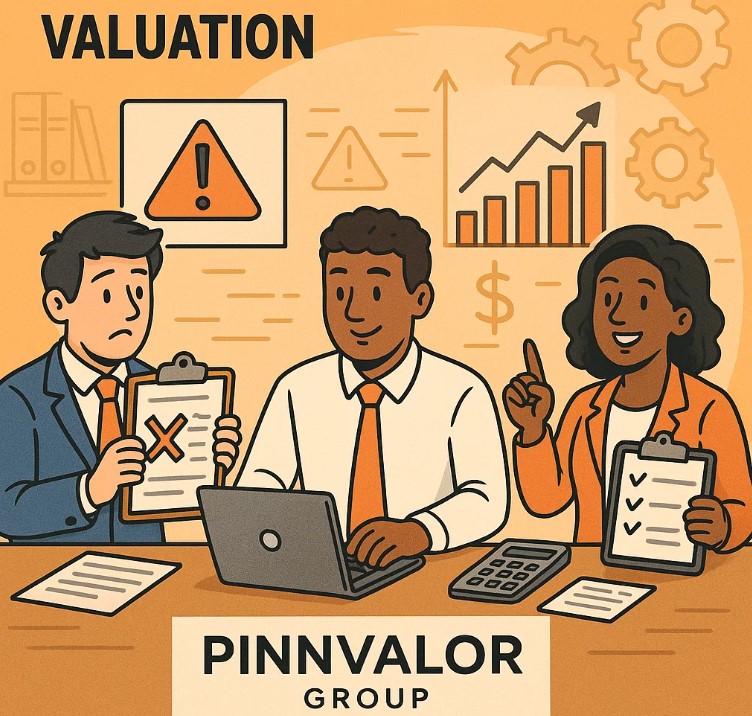
Key Missteps in Joint Venture (JV) Accounting & Valuation
Joint ventures (JVs) are powerful tools for companies looking to collaborate, pool resources, and share risks in new markets or projects. However, despite their strategic advantages, JVs often present complex accounting and valuation challenges. Missteps in these areas can lead to financial misstatements, regulatory issues, and even disputes among partners. In this blog, we’ll explore the most common pitfalls in JV accounting and valuation—and how to avoid them.
Are you unknowingly making costly mistakes in your joint venture accounting and valuation?
Missteps in JV accounting can lead to financial misstatements, disputes, and regulatory risks. Stay vigilant and standardized.
1. Misclassifying the Nature of the JV
One of the first and most critical mistakes companies make is incorrectly classifying the JV. Accounting treatment varies depending on whether the JV is a:
- Joint operation: Where partners share assets, liabilities, and expenses directly.
- Joint venture: Typically structured as a separate entity where profits and losses are recognized using the equity method.
Why it matters: Misclassification can lead to improper recognition of revenue, expenses, and assets, distorting the financial statements.
Tip: Always assess control, rights, and obligations under IFRS 11 or relevant GAAP guidelines before deciding on the accounting approach.
2. Inconsistent Application of the Equity Method
For JVs accounted for under the equity method, many companies falter in consistently applying it. Common mistakes include:
- Failing to adjust for post-acquisition changes in ownership.
- Not recognizing the investor’s share of losses correctly, especially when it exceeds the investment.
- Ignoring intra-group transactions that can artificially inflate revenue or assets.
Tip: Maintain meticulous tracking of ownership percentages and ensure all JV profits, losses, and adjustments flow accurately into your books.
3. Overlooking Fair Value Adjustments
Valuation is a critical aspect of JV accounting, particularly during:
- Initial recognition
- Impairment testing
- Mergers or acquisitions
A frequent misstep is failing to adjust for fair value changes in assets, liabilities, or intangible resources. Ignoring these adjustments can lead to overstated assets and understated losses.
Tip: Conduct independent valuations periodically, and reconcile fair value changes with accounting records to maintain accuracy.
4. Neglecting Tax Implications
Tax treatment of JVs can be complex, and overlooking these implications can have costly consequences. Errors often arise from:
- Misunderstanding local tax laws in cross-border JVs
- Failing to account for withholding taxes or deferred tax assets/liabilities
- Not aligning the JV’s accounting treatment with tax reporting requirements
Tip: Engage tax professionals early in JV structuring to avoid surprises and ensure compliance.

5. Ignoring Governance and Reporting Requirements
A lack of proper governance can lead to reporting inconsistencies or even disputes among partners. Common issues include:
- Inadequate agreements on profit sharing or decision-making authority
- Delayed or incomplete financial reporting
- Lack of standardized accounting policies across partners
Tip: Draft comprehensive JV agreements with clear accounting policies and reporting schedules. Standardization is key to minimizing misunderstandings.
6. Underestimating Impairment Risks
JVs often involve long-term projects with fluctuating market conditions. Failing to periodically test for impairment can result in overvalued assets and sudden write-downs that affect financial stability.
Tip: Perform regular impairment assessments, especially for intangible assets, goodwill, or investments in high-risk projects.
7. Overcomplicating Valuation Models
Some companies rely heavily on complex valuation models without grounding assumptions in reality. Overestimating future cash flows or underestimating costs can produce inflated valuations and misleading conclusions.
Tip: Use realistic assumptions, stress-test scenarios, and cross-check valuations with market benchmarks to maintain credibility.
Conclusion
Joint ventures can unlock tremendous strategic value, but only if accounting and valuation are handled correctly. Missteps—ranging from misclassification and inconsistent equity accounting to neglected tax implications and flawed valuations—can lead to significant financial, operational, and reputational risks.
By adopting rigorous accounting practices, standardized reporting frameworks, and realistic valuation models, companies can ensure their JVs deliver value while maintaining transparency and compliance.